Media Release
Bengaluru, Sep 19: "Hydrogen is set to play a transformative role in India’s space missions, transportation, and clean energy future," said Dr V Narayanan, chairman, ISRO, at a national workshop on "Hydrogen Fuel Technologies and Future Trends" held at Alliance University, in association with Indian Institute of Science.
The prestigious event was attended by dignitaries and experts including Dr V Narayanan, chairman of ISRO, as the chief guest; Dr N Kalaiselvi, director general, CSIR and secretary, DSIR, as the guest of honour; and Dr Vijay Kumar Saraswat, chairman of CIIS and hon’ble member of NITI Aayog, who delivered the inaugural keynote on "India’s Hydrogen Policy and Future Trends".
The workshop highlighted the applications of hydrogen in engines and turbines, recent technological advances, and the challenges and opportunities for integrating hydrogen into India’s energy landscape.
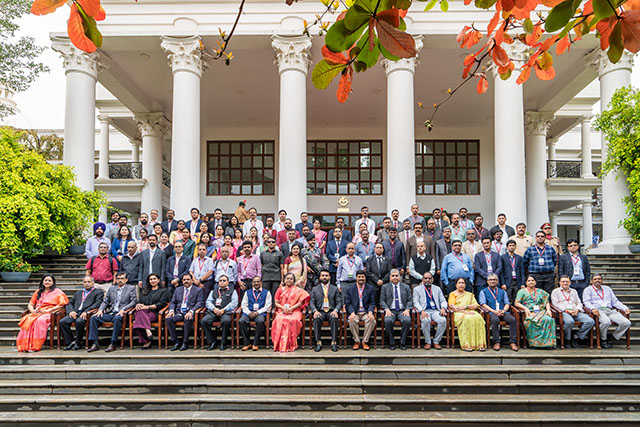
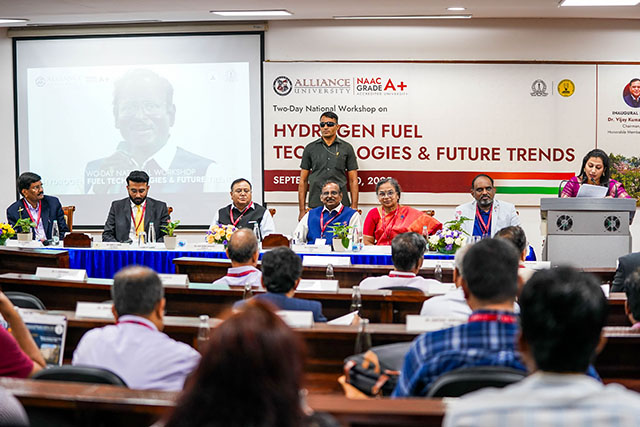
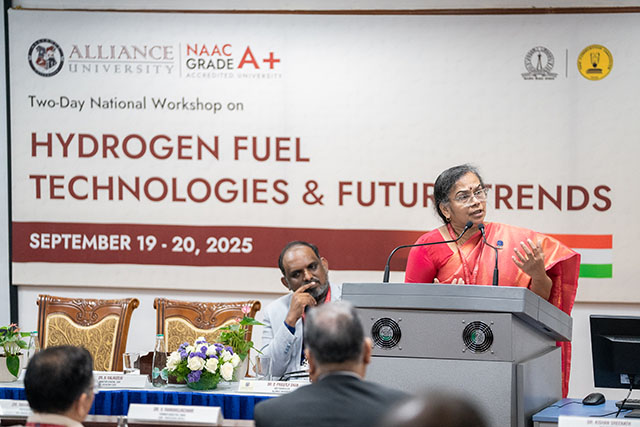
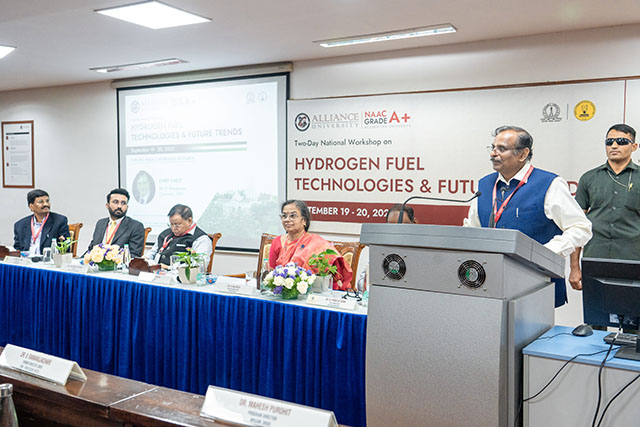
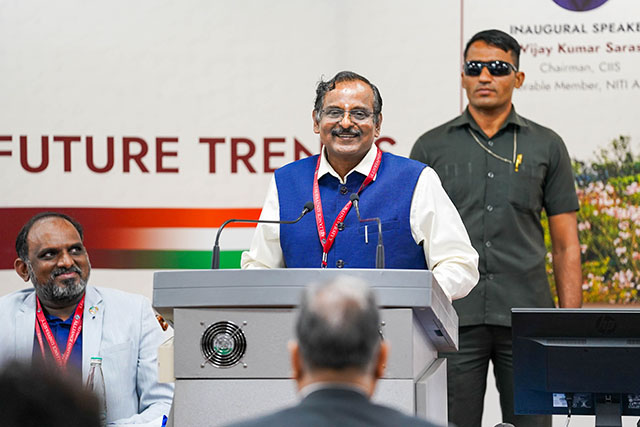
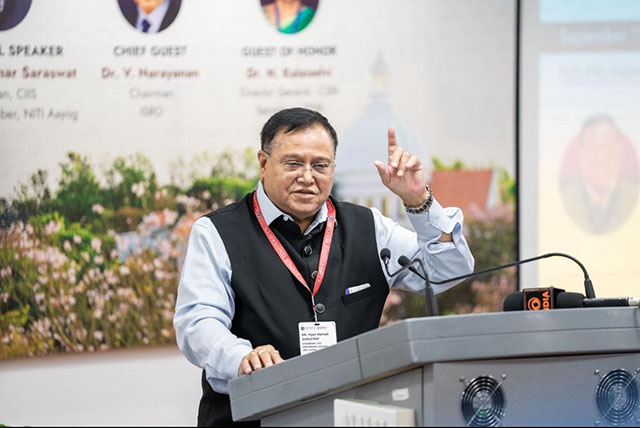
Highlighting India’s advancements in hydrogen technology, Dr V Narayanan, chairman, ISRO, said: “The world today faces twin challenges: the growing demand for energy and the urgent need to reduce greenhouse gas emissions. In this context, hydrogen, one of the greenest and cleanest fuels available to us, is a beacon of hope. It remains key in many of our breakthroughs at ISRO. In January, India successfully launched the GSLV Mk III rocket, marking its 100th successful mission. It was powered by a cryogenic stage using liquid hydrogen and liquid oxygen, a technology once denied to India but now mastered by the country. Last year, we demonstrated a 100-watt oxygen-based fuel cell in space, with a 20-kilowatt version under testing.”
He added: “Beyond rockets, hydrogen has applications in aircraft, trains, automobiles, and fuel cells. In 2010–11, ISRO and Tata Motors collaborated to build a hydrogen fuel cell-powered bus, which was safely tested despite concerns, proving our confidence in the technology. In June 2025, five hydrogen-powered buses began commercial operations. Companies like BHEL and NTPC are now working on hydrogen systems and gas turbine engines.”
Dr V Narayanan cautioned that hydrogen flames are colourless and dangerous. “We must never ignore the safety risks: with vast hydrogen facilities, the scale of potential danger is real. This highlights the urgent need for better hydrogen sensors, moving from current 3 to 4 second response times to millisecond-level detection.”
Talking about achievements of ISRO in cryogenic engines, he said: “We now have three cryogenic propulsion systems flying, and in three parameters, we are world number one. For instance, we succeeded in a first flight using just three engines, completed engine development in 25 months compared to the global average of 34, and conducted a stage test in 34 days, while the world average is 10 months. We also made history by launching the NASA-ISRO NISAR satellite with a high-value payload built by India, showing how far we've come since our first small rocket in 1963.”
Abhay G Chebbi, pro-chancellor, Alliance University, said, “Hydrogen is rapidly emerging as a clean, efficient, and versatile energy carrier, capturing global attention for its transformative potential in powering a sustainable future. With zero carbon emissions at the point of use, hydrogen fuel offers a promising pathway to decarbonise critical sectors and advance sustainability objectives. Hydrogen is often described as the fuel of the future, but the truth is, the future is now. With less than 1% of global hydrogen coming from renewable sources, workshops like these are critical to bridge the gap between possibility and practice. Our students, the next generation of engineers and scientists must not only observe but actively contribute to this energy transition.”
Dr N Kalaiselvi, DG CSIR, highlighted the importance of hydrogen research and innovation for India’s global competitiveness. “Hydrogen is more than an element. It is a catalyst, a fuel, and a bridge between fossil fuels and renewable energy. India must focus on production, storage, and application technologies to lead the world. Achieving breakthroughs in sensors, electrolyzers, and fuel cells will place Indian science at the forefront globally,” she said.
Dr Vijay Kumar Saraswat, chairman, CIIS and member, NITI Aayog, reinforced the call for a robust hydrogen economy. He said: “India must accelerate its journey towards a hydrogen economy if we are to achieve our net-zero ambitions. Hydrogen offers immense potential across mobility, industrial heating, and energy generation. Methanol can serve as an effective hydrogen carrier to overcome storage challenges. While we have demonstrated capability in producing methanol and hydrogen from high-ash coal gasification, critical gaps remain in electrolyzers, storage systems, compressors, and fuel cells—areas where India is still dependent on global suppliers.”
He added: “Safety and handling also demand advanced research, especially for IC engines, fuel cells, and rocket applications. As nations like China move ahead with hydrogen-methanol technologies, India must intensify indigenous R&D, build testing infrastructure such as 700-bar storage systems, and innovate in new storage materials. Hydrogen IC engines and carriers like methanol are particularly vital for heavy-duty transport and marine sectors, where batteries fall short. This is the time for India to go beyond imitation, invest in self-reliant hydrogen solutions, and position hydrogen as the bridge between fossil fuels and renewables in our energy transition.”
Said Pradip Kumar Pandey, secretary, The Combustion Institute – Indian Section (CIIS) said, “This workshop comes at a crucial time, as India prepares for major advances in hydrogen technology and its applications. With nearly 150 participants from academia and industry, and high-level technical papers being presented, the event reflects the growing momentum in this field. We are proud to host thought leaders from institutions such as IISc, IITs, and leading global companies. Together, we hope to build knowledge, foster collaborations, and strengthen India’s role in the global hydrogen economy.”
The workshop highlighted India’s commitment under the National Green Hydrogen Mission, which aims to make India a global hub for hydrogen production, use, and export. It provided a platform for experts from academia, research institutions, and industry to discuss hydrogen’s role in mobility, industrial applications, and energy systems, while addressing challenges such as storage, production costs, and safety.